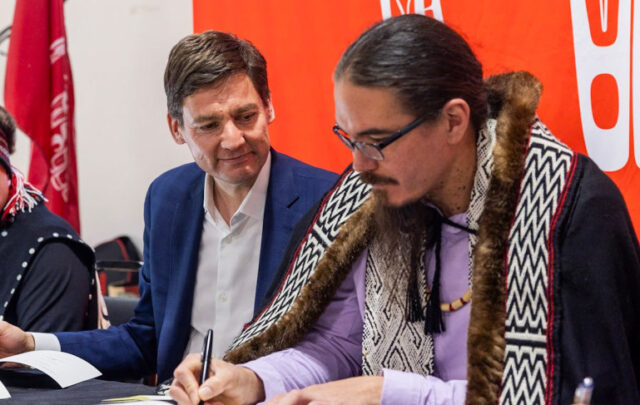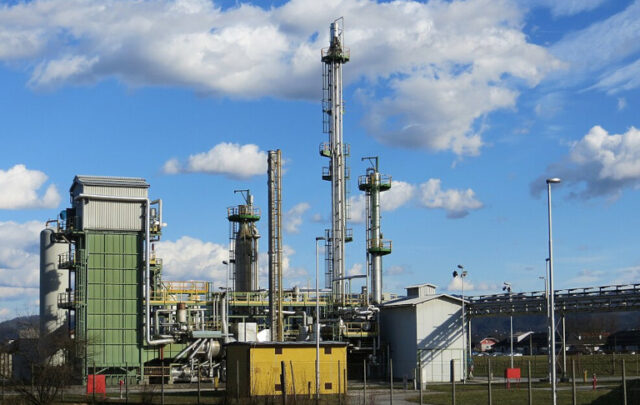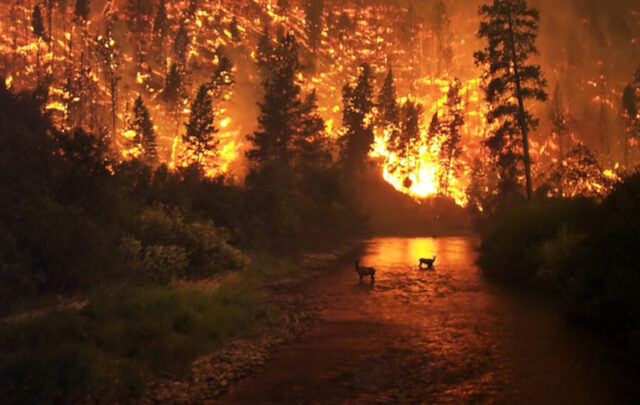Click on the headline (link) for the full text.
Many more articles are available through the Energy Bulletin homepage
Heinz Center’s O’Malley explains how to fill gaps in environmental research
OnPoint, E&E TV
Four years ago, researchers at the H. John Heinz III Center for Science, Economics and the Environment completed a major study looking at U.S. ecosystems, but found the state of knowledge on many environmental issues to be sorely lacking. During today’s OnPoint, Robin O’Malley, director of the environmental reporting program at the Heinz Center, describes how to address some of the biggest holes in ecosystems research, for a relatively low cost. Plus, O’Malley discusses why federal and state researchers need to work together on a stronger national monitoring system. (Video and transcript.)
(21 June 2006)
Is Global Warming Fueling Western Wildfires?
Bill Blakemore, ABC
This year, wildfires have already burned more than 3 million acres — more than three times the average at this time of year.
Many scientists say that these fires fit exactly into the pattern predicted for global warming and that it’s likely to get, on average, even drier and hotter.
Over the last month, ABC News has traveled through the San Bernardino Mountains, Western Sierras, and Rockies to find out what scientists and firefighters make of the new flames they must now face.
The size and ferocity of these wildfires plaguing the West right now — many growing in size every hour — astonishes even experienced fire chiefs like Mat Fratus of the San Bernardino City Fire Department.
“I had talked to people who had been in the fire service their entire career, and not only this fire, but fires in preceding years, because of the drought, because of the fuel conditions, they produced fire behavior, flame links, intensities that we had never really experienced before,” Fratus said.
…Today’s wildfires are part of a worsening pattern most everywhere.
Since 1970, the number of major wildfires has soared not only in North America but around the world.
(21 June 2006)
Reading the Poles: Earth’s Ice in Jeopardy (Audio)
Richard Harris, All Things Considered, National Public Radio (US)
Boulder, Colo., is home to the National Snow and Ice Data Center, a repository of up-to-the-minute information about the state of the world’s ice. The center is a collection of whirring computers, and more importantly, people whose mental thermometers are set below 32 degrees, like research scientists Ted Scambos and Mark Serreze.
Scambos studies Antarctica’s massive ice sheets, while Serreze keeps his eye on the ice around the North Pole. Their research has turned up the same finding: The planet’s ice is in jeopardy.
When the enormous Larsen B ice shelf along the Antarctic peninsula broke off and disappeared into the sea in 2002, Scambos was worried no one would care. Four years later, Scambos and Serreze have become the human face of the melting planet, using their research, presentations and interviews to get the message out.
Now, they say, people are beginning to understand that global warming is happening and the consequences are already being felt.
(20 June 2006)
NPR has this sub-title for their climate change coverage: “The new debate on global warming is how much will our climate change, and how fast.”
EU, US to Agree “Urgent” Action on Climate Change
Reuters via Planet Ark
BRUSSELS – The United States and the European Union, long at odds over the significance of climate change, will agree on Wednesday to act with “resolve and urgency” to reduce emissions of gases blamed for global warming.
In draft conclusions of the EU-US summit in Vienna obtained by Reuters, the two sides pledge their commitment to boost investment in less-polluting fossil and renewable fuel sources, make more use of renewable energy and lower the amount of heat-trapping greenhouse gases in the atmosphere.
“We will work more closely to address the serious and long-term challenge of climate change, biodiversity loss and air pollution and will act with resolve and urgency to reduce greenhouse gas emissions,” the draft conclusions said.
The conclusions did not mention specific targets but said the two sides would hold an annual strategic review of EU-US energy cooperation.
(21 June 2006)





